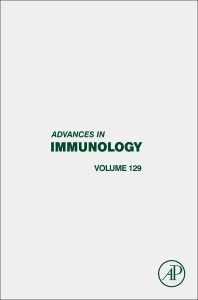Description
Advances in Immunology
Advances in Immunology Series
Director of collection: Alt Frederick
Language: English
Subjects for Advances in Immunology:
Keywords
Support: Print on demand
Description
/li>Contents
/li>Biography
/li>Comment
/li>
1. Rheumatoid Rescue of Misfolded Cellular Proteins by MHC Class II Molecules: a New Hypothesis for Autoimmune Diseases Hisashi Arase 2. Mechanism of Diapedesis: Importance of the Transcellular Route Marie-Dominique Filippi 3. Evolution of the Humoral Response during HCV Infection: Theories of the Origin of Broadly Neutralizing Antibodies and Implications on Vaccine Design Armstrong Murira and Alain Lamarre 4. Forging T-Lymphocyte Identity: Intersecting Networks of Transcriptional Control Ellen V. Rothenberg, Jonas Ungerbäck and Ameya Champhekar 5. Gene Map of the HLA Region, Graves’ Disease and Hashimoto Thyroidits, and Hematopoietic Stem Cell Translantation Takehiko Sasazuki, Hidetoshi Inoko, Satoko Morishima and Yasuo Morishima 6. The Pathogenesis and Immunobiology of Mousepox Luis J. Sigal 7. MAP4K Family Kinases in Immunity and Inflammation Huai-Chia Chuang, Xiaohong Wang and Tse-Hua Tan
- Contributions from leading authorities
- Informs and updates on all the latest developments in the field
These books may interest you

Advances in Immunology 153.10 €

Tumor Immunology 166.19 €

Advances in Immunology 153.10 €

